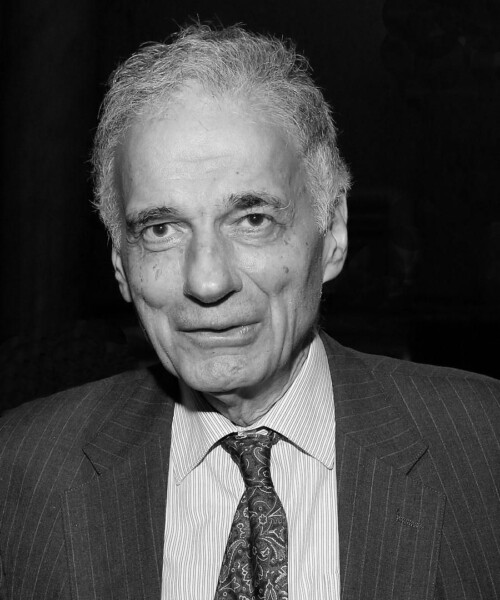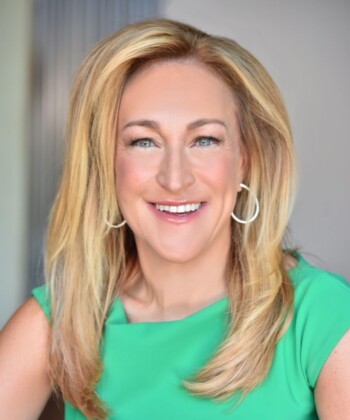Earlier this month, Ralph Nader—consumer advocate, five-time presidential candidate and serial organization founder—was in New York to speak on a panel titled “The Fukushima-Daiichi Nuclear Accident: Ongoing Lessons for New York.” Alongside former Japanese Prime Minister Naoto Kan and a gaggle of Nuclear Regulatory Commission bigwigs, Nader, now 79, talked about the implications of living in a nuclear age and the unmet responsibilities that go along with it.
After the panel, Nader sat with DuJour to discuss what he sees as the most menacing wrongs in the world and, on a lighter note, why nobody seems to understand how funny he is. Here are excerpts of the conversation:
During the panel you said that we’re ‘driving out good public figures and replacing them with rascals.’ How does that apply to the government shutdown we’re currently experiencing?
When money greases political wheels, it allows people who are not very capable to run for and be elected to office. The people who are capable don’t want to go through the sleaze and the disgusting process involving money and politics, begging special interest groups for money to support a campaign. Bad politicians shove out good ones.
You also spoke about matters relating to nuclear power. What are the other issues you think are most pressing for Americans today?
Criminal wars of aggression by this empire; we’re going into any country we want and killing anyone we want. It’s expanding the ranks of the enemies who hate us and will eventually exact retribution. It’s draining a huge amount of money from repairing America’s schools, clinics, libraries and public transit, all of the things in our communities that are crumbling. There’s also the excessive role of corporate crime, rip-offs for consumers and the health-care industry, environmental issues, mistreating workers by freezing the minimum wage.
What’s causing these problems?
If you want to go into the causes of the gridlock today, it’s Obama, who didn’t pay attention to connecting his campaign with congressional campaigns. He would never help members of the House of Representatives as he was going around the country; it was a very egocentric presidential campaign and now Democrats tell me privately that they were aghast and they resent it.
He got [Speaker of the House John] Boehner and [Majority Leader Eric] Cantor, he got a Republican house. If the Democrats cannot landslide the worst Republican party in history—based on their votes against children’s needs, violence against women, the environment, women’s rights, tax havens for the oil industry—if they can’t beat a party like that, they need to take a look at themselves in the mirror.
It’s hard to believe, but we’re not too far from another election cycle. What do you predict happening in Washington come 2016?
At the presidential level, Democrats have an advance because of the rising percentage of minority votes. It gives them a one up. And the Republican primary is so extremist that it forces the winner to take positions to win the primary that he regrets and loses votes on come the November election. But if the Republicans control the House or the Senate or both, it doesn’t matter who’s in the White House.
You recently performed stand-up comedy at a D.C. club. How did that go?
I had an uphill fight. I’ve been on Saturday Night Live five times, but a friend has said he never once saw me laugh. I had to experiment with three laughs in order to see which I would adopt for my new personality in this club off Connecticut Avenue. They did favor one laugh—heh heh heh; it’s a knock-off of Al Franken’s—and then I unveiled the Oath of the Apathetic. If people aren’t going to get involved, if they’re going to spend a billion dollars on Grand Theft Auto and not carve out some time for civic involvement, I think they should join the national society of the apathetic. Once they take this oath, they’re lifetime members. I gave that oath.
How did that go over?
They seemed to see the sardonic motive behind it. It was sort of sad.
You were once named by The Atlantic as one of the 100 most influential Americans in history. What’s the message you want people to hear from you?
That they can change things in America and it’s a lot easier than we think. A million workers surrounding Walmart or McDonald’s and focusing on members on Congress will get the minimum wage up to $10.50, equal to what it was in 1968. There are only 535 members of Congress—you don’t think a few million people spending some time focusing on them can make a difference?
MORE:
What You’ll Learn on Meghan McCain’s New Show
Rahm Emanuel 2.0: Less Screaming, More Smiling
An Interview with Newark’s Cory Booker









































